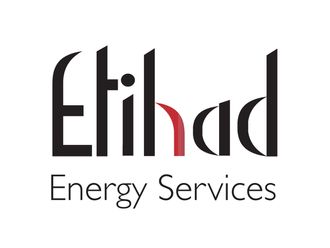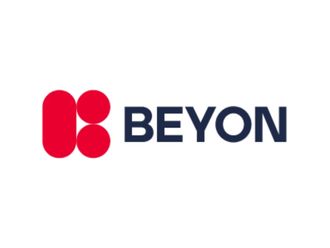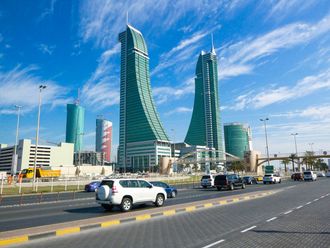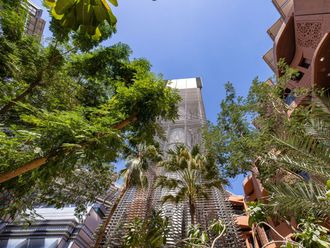Manama: Iran should put an end to its proxy influences in the region and instead engage in more responsible attitudes in the region and beyond, a senior UK minister has said.
“Iran now has entered into an interesting chapter where it has the ability, should it choose to, to engage in a more responsible attitude in the region,” Foreign and Commonwealth Office Minister for the Middle East and North Africa Tobias Ellwood said in the Bahraini capital Manama.
“We are not blind to its continued proxy influence. Its actions have not changed as yet. The language being used by President Rouhani and Foreign Minister Zarif is far more welcome than we had from President Ahmadinajad, for example; however, it is actions that count, not just words. Therefore, we want to encourage Iran to take a more responsible role, to recognise how it can play a more appropriate influence in helping resolve challenges, such as what is happening in Yemen, in Lebanon, and indeed what is happening in Syria where they continue to propel Bashar Al Assad.”
Ellwood referred to the status of the Lebanese group Hezbollah as an example of negative influence by Iran and said that, as a member of the government, it should assume a role that reflects its involvement in the country’s political affairs.
“The role of Hezbollah has been complicated; it has been influenced by Iran. This is an example of one area where Iran has used its proxy influence to cause instability. There are many examples of that, including Bahrain. With the nuclear deal, we call on Iran to take a more responsible attitude. Hezbollah is part of the governance structure in Lebanon. It needs to reconcile and move into the full political arena, and not retain its military status or support from Iran,” Ellwood said.
The official added, during a roundtable meeting with the media, that his country was excited about the opening of a naval facility in Bahrain, stressing that it would contribute to ensuring peace and stability in the region.
“We are very grateful to the Bahraini authorities for allowing HMS Juffair in order to allow aircraft carriers and destroyers to eventually come here, and to work with Bahrain in order to make the Gulf a safer place. For us, it is critical that we are now returning with a significant maritime footprint working with the Bahrainis. This new base is an exciting new chapter in our military cooperation,” he said.
“It is an important aspect of Britain’s strategic policy. I make it very clear that Bahrain and the Gulf are important for Britain. As a country, we are outward looking. We are an internationally-facing country. Many of our companies have interests in Bahrain and in the Gulf. So, your security is our security. That is why it is important that we work together. Not only this, we are old allies as well,” he said.
The minister said that Bahrain was contributing in the strategic communication cell set up by the UK to challenge the online extremism.
He explained that the cell brings together “best practice from around the world to challenge the poisoned ideology that is trying to indoctrinate the youth no matter where they are in the world.”
Extremism does not affect just the Middle East, he said, adding that it is affecting every aspect of society across the world.
“We have seen attacks in Paris and in Brussels, and we have seen recruits being drawn from the UK as well. So, it is important that all countries work together on tackling extremis,” he said.
The British official said that reforms were progressing in Bahrain and insisted that time was needed to reinforce the process.
“The straightforward relationship actually allows us to raise some difficult, challenging issues in a way that perhaps other countries cannot. We have a very strong bond with Bahrain that goes back to two centuries. We also have a commercial relationship. But our commercial relationship does not prevent us from raising very difficult and important questions about human rights, rule of law and democracy. In fact, further to that, we actually invest a lot of time, energy and resources to assist Bahrain in making progress in these areas,” he said. “It takes a long time. Britain has had 800 years since Magna Carta. Bahrain had its independence at the end of the last century. Everybody wants change, shouts for change immediately, but this does take time. It takes time to get the processes in place. We want to encourage and we are assisting in many of our programmes, sharing experiences as well, prison reform, judicial reform, ombudsman reform as well. There are lots of areas where Britain is able to assist,” he said.












